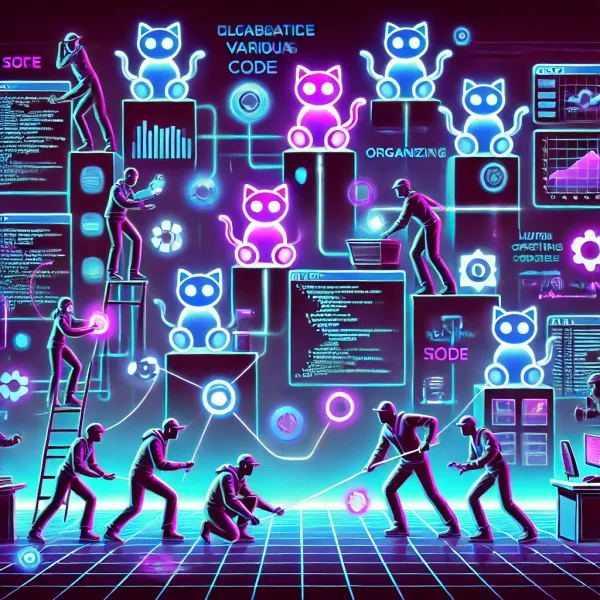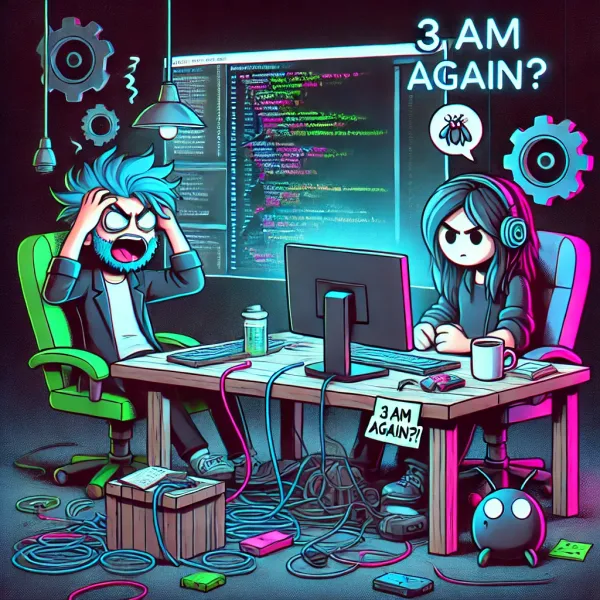Adaptability in Tech for Software Engineers
Adaptability is key for software engineers to thrive in tech's fast-paced world. Learn how to stay relevant.

The tech world moves faster than a kid with a sugar rush. It’s an endless cycle of new tools, surprise updates, and “must-learn” languages that spring up overnight. If you're a software engineer, this constant change is not just part of your daily routine; it's practically a core job requirement. But let's face it—without adaptability, you're basically a flip phone in a 5G world.
🔑 Key Takeaways 🔑
- Adaptability is a core skill for software engineers in the ever-changing tech industry.
- Staying open to new ideas and being ready to pivot helps maintain relevance.
- Mistakes are opportunities to learn, not setbacks to fear.
- Feedback is essential for growth, but it's up to you to decide what to act on.
Adaptability in Tech: Not Just a Buzzword
In tech, the buzzwords are relentless: "in the cloud," "agile," "scrum," and the list goes on. Amidst the jargon lies one of the most critical yet underrated skills: adaptability. Why? Because if you can’t adjust to the shifts, you’ll be left behind faster than Internet Explorer. Adaptability isn’t just a skill; it’s survival.
So, What Does “Adaptability” Even Mean?
Let’s get this straight: adaptability doesn’t mean accepting every terrible idea thrown your way. It’s about keeping an open mind, learning from failure, and pivoting when needed. It’s the skill that separates the engineers who can handle a project rewrite from those who’ll need therapy afterward.
Adaptable software engineers are the ones who see a new framework and think, “Great, a challenge!” rather than, “Ugh, another weekend lost to YouTube tutorials.”
Why Adaptability Matters
1. Tech Changes. A Lot.
JavaScript libraries evolve faster than Marvel movie plots. There’s no getting comfortable—your current tech stack might be obsolete next week. And that's not an exaggeration. Adapting means staying curious and seeing each change as an opportunity rather than an obstacle.
2. Innovation Thrives on Adaptability
The best ideas often come from unexpected places. Maybe that random brainstorming session about “AI-generated cat memes” sparks your next breakthrough feature. Who knows? Staying adaptable keeps you open to new ideas and random insights, some of which turn out to be gold.
3. Job Security (Kind Of)
Skills are like milk—they have an expiration date. Today's “rock-solid expertise” could be tomorrow's outdated knowledge. But if you’re adaptable, you’ll never truly be out of the game. Upskilling is just another Tuesday, not an existential crisis.

How to Build Adaptability Without Losing Your Mind
Fail Fast, Learn Faster
Mistakes are going to happen. Maybe you accidentally wiped a database once. (Okay, twice.) But hey, as long as you learn from it, you're on the right track. Adaptable engineers don’t just survive mistakes; they use them to improve.
Stay Curious
Never think, “I know enough.” That’s a recipe for becoming a living relic in the tech museum. Read, explore, take online courses. Did you know there's a programming language specifically for making toasters smarter? You don’t need to know it, but staying open to learning oddball things is what keeps you adaptable.
Seek Feedback (Even When It Hurts)
Feedback is the honest mirror you need. While it may sting, it's a surefire way to adapt and improve. But remember, feedback isn't law—it's information. Adaptable engineers sift through it, take the good bits, and leave the rest in the “meh” pile.
Adaptability: It’s Not Just for Juniors
Think adaptability is only for newbies? Think again. Senior engineers and team leads need it more than anyone. Being adaptable isn’t just about learning the latest tech; it’s also about adjusting leadership styles, changing processes, and adapting to teams with different dynamics.
In fact, the most respected leaders aren’t the ones who know everything but the ones who know how to adjust when things go sideways—and trust me, they often do.
TL;DR: Adapt or Get Out of the Way
The tech industry won’t stop changing, and neither should you. Whether it's a new language, a paradigm shift, or even just a reorg that messes up your favorite coffee break, adaptability is your best friend. So, if you’re not already cultivating it, start now. Because while the tools and frameworks might change, the demand for adaptable engineers never will.




